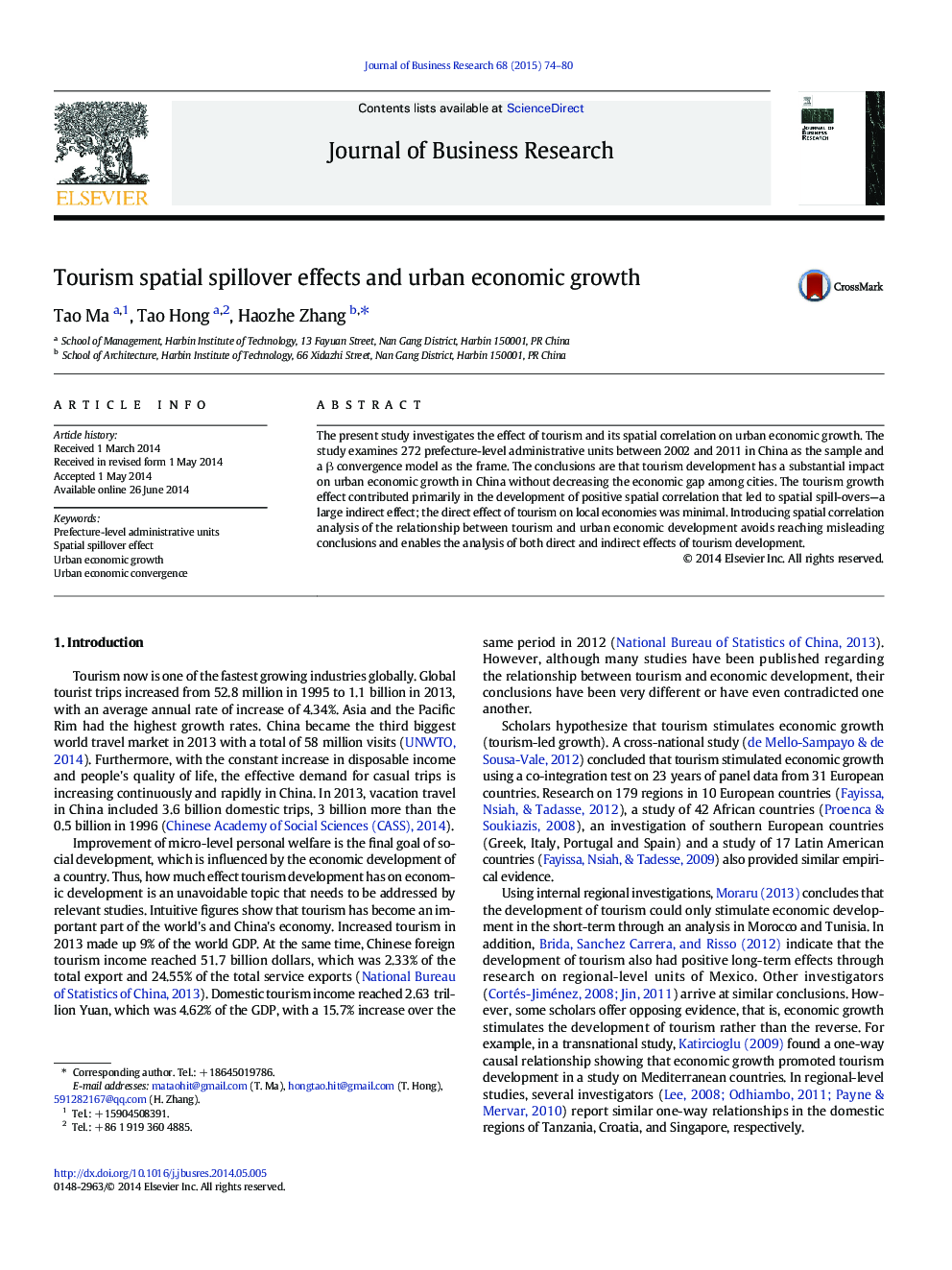| Article ID | Journal | Published Year | Pages | File Type |
|---|---|---|---|---|
| 1017311 | Journal of Business Research | 2015 | 7 Pages |
The present study investigates the effect of tourism and its spatial correlation on urban economic growth. The study examines 272 prefecture-level administrative units between 2002 and 2011 in China as the sample and a β convergence model as the frame. The conclusions are that tourism development has a substantial impact on urban economic growth in China without decreasing the economic gap among cities. The tourism growth effect contributed primarily in the development of positive spatial correlation that led to spatial spill-overs—a large indirect effect; the direct effect of tourism on local economies was minimal. Introducing spatial correlation analysis of the relationship between tourism and urban economic development avoids reaching misleading conclusions and enables the analysis of both direct and indirect effects of tourism development.
